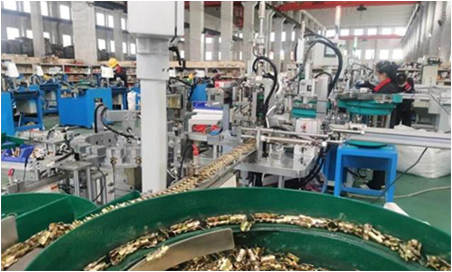okt . 22, 2024 13:51 Back to list
Various Types of Mechanical Bolts and Their Applications in Engineering
Understanding Mechanical Bolt Types A Comprehensive Guide
Mechanical bolts are essential fasteners used in a wide range of engineering applications, providing reliable connections in various assemblies. With numerous types designed for different functions and environments, choosing the right bolt can significantly influence the integrity and longevity of your mechanical assembly. This article delves into the various types of mechanical bolts, their applications, and important considerations when selecting them.
Types of Mechanical Bolts
1. Hex Head Bolts One of the most common types, hex head bolts feature a hexagonal head that can be tightened using a wrench. They are available in various grades and materials, making them suitable for various applications, from construction to machinery.
2. Square Head Bolts Similar to hex head bolts but with a square-shaped head. They are often used in areas where a better grip is required, and typically found in heavy-duty applications due to their increased resistance to rounding off when tightening.
3. Carriage Bolts These bolts have a rounded head and a square section underneath, ensuring that the bolt does not turn when the nut is tightened. Carriage bolts are commonly used in wood and are ideal for securing wooden structures.
4. Lag Bolts Also known as lag screws, these robust bolts are designed for heavy-duty applications and are generally used in wood. They have a coarse thread that provides strong holding power, making them ideal for securing wood to wood or wood to metal.
5. Shoulder Bolts These bolts feature a smooth, cylindrical shoulder beneath the bolt head, which allows for rotation and can be used as a pivot point. They are often used in applications where a part needs to rotate against a fixed point.
6. Machine Bolts Also referred to as machine screws, these are designed for fastening metal parts together and are often available in various head styles, including flat, round, and pan heads. They are used in machine assemblies, and can be driven using a screwdriver.
7. Tension Control Bolts (TC Bolts) These bolts are designed specifically for structural connections. They provide a reliable way to achieve the desired tension using a splined installation tool. TC bolts are particularly common in steel construction for their ability to simplify the installation process.
8. Stud Bolts Stud bolts are essentially threaded rods that are used in conjunction with nuts. They are often employed in high-pressure and high-temperature applications, where they can effectively hold components together under significant stress.
mechanical bolt types

9. Flange Bolts These bolts have a built-in flange under the head, providing a larger surface area to distribute the load. They are typically used in applications where vibration and loosening are concerns, such as automotive and machinery.
Material Considerations
The material of the bolt is as crucial as the type
. Common materials include- Carbon Steel Offers high strength and durability, commonly used for general purpose bolts. - Stainless Steel Provides excellent corrosion resistance, making it suitable for outdoor and marine applications. - Alloy Steel Used for high-strength applications, can be treated for enhanced performance. - Brass Known for its corrosion resistance and aesthetic appeal, often used in electrical applications.
Choosing the Right Bolt
When selecting a bolt, consider the following factors
1. Load Requirements Assess the amount of load the bolt needs to bear. This will influence the type and material of the bolt you choose. 2. Environmental Factors Determine whether the bolt will be used in a corrosive environment, which would necessitate corrosion-resistant materials.
3. Installation Method Consider how the bolt will be installed, whether it requires a wrench, screwdriver, or specialized tools for tension control.
4. Standards and Regulations Ensure that the selected bolts meet relevant industry standards, especially in critical applications such as structural engineering.
5. Cost and Availability While quality is paramount, the cost and availability of different bolts can impact your choice, particularly for large projects.
In summary, understanding the various types of mechanical bolts and their applications is essential for any engineer or technician. By evaluating the specific requirements of your project, from load capacity to environmental conditions, you can select the most appropriate bolt type to ensure a robust and reliable assembly. The right choice not only enhances the durability of your mechanisms but also ensures safety and efficiency in their operation.
-
The Ubiquitous Reach of DIN934 in Application Realms
NewsMay.16,2025
-
Exploring Different Bolt Types
NewsMay.16,2025
-
Cracking the Code of Sleeve Anchor Mastery
NewsMay.16,2025
-
Clamp Design Principles,Types and Innovations
NewsMay.16,2025
-
Artistry Inspired by the Humble Anchor Bolt
NewsMay.16,2025
-
A Deep Dive into Screw Types
NewsMay.16,2025


